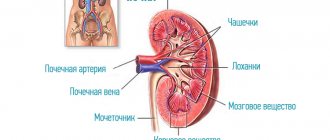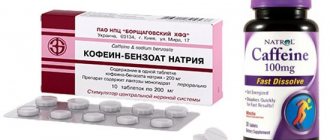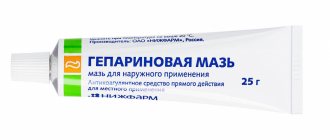Many patients, having felt a sore throat, independently diagnose themselves with a “cold” and begin to be treated incorrectly. After all, a constant sore throat is not only a sign of an infectious disease of the pharynx. This may be a sign of serious pathological processes occurring in other human organs and systems, for example, neurosis or a tumor of the pharynx. Why does my throat get sore and how to cope with this condition? You will find the answer in a new article.
A sore throat is a symptom that usually occurs suddenly. These unpleasant sensations can vary in intensity: from barely noticeable tickling to severe, constant discomfort. This condition is accompanied by symptoms of the disease such as a constant cough, pain in the throat, hoarseness in the voice, etc.
Often a constant sore throat is a sign of the onset of a cold. But you will be surprised that there are many other, non-infectious factors that provoke a sharp sore throat and bring discomfort to the patient for a long time.
In any case, no matter what diagnosis or condition provokes a feeling of rawness in the throat and frequent coughing, this is an alarming signal from the body about the pathological changes taking place. Therefore, regardless of the severity of the symptom, it is necessary to begin treatment immediately, and not wait until the unpleasant sensations bring severe discomfort for a long time. After all, it is early diagnosis that allows you to quickly eliminate symptoms, and treatment is much more effective.
Missing the opportunity to cope with the disease at an early stage and prevent complications from arising is the task of not only the doctor, but also the patient himself!
Let's look together at the reasons for a constant sore throat.
Causes of sore throat
Inflammatory. The most common cause of a sore throat and dry cough is acute respiratory diseases. These are infections caused by various pathogens:
- viruses (parainfluenza, influenza, respiratory syncytial virus, enterovirus);
- bacteria (streptococci, staphylococci);
- fungi (for example, yeast of the genus Candida).
Infections are transmitted mainly by airborne droplets, as well as by contact. Their maximum incidence is observed in the cold and damp seasons. An infectious agent, penetrating the body, is fixed on the mucous membranes of the respiratory tract, where, in response to its penetration, a protective reaction in the form of inflammation is triggered. Swelling and redness of the mucous membrane develop, leading to discomfort, pain and sore throat, causing coughing.
Non-inflammatory. A sore throat and dry cough can also occur with non-inflammatory damage to the mucous membranes of the upper respiratory tract:
- for allergic pharyngitis, laryngotracheitis, bronchitis;
- thermal irritation of the respiratory tract (inhalation of hot or cold air);
- irritation from chemical agents (ingress of particles and vapors of varnishes, paints, household chemicals, gasoline, etc.);
- strong vocal stress (“lecturer’s” laryngitis);
- smoking;
- injury or foreign body entering the lumen of the larynx, pharynx, trachea.
In addition to respiratory diseases, tickling and dry cough may occur:
- against the background of the use of certain medications (ACE inhibitors, diuretics);
- with heart failure;
- hypothyroidism and after surgery on the thyroid gland (damage to the laryngeal nerve leads to hoarseness, sore throat without coughing);
- diabetes mellitus;
- neuroses.
Acute and chronic laryngitis
What can you do if you have a sore throat and lost your voice?
Acute and chronic laryngitis: symptoms and treatment in adults and children
Laryngitis is “ubiquitous.” It affects teachers and students, lecturers and students, singers, announcers and those whose profession is not associated with vocal strain. It appears in the cold season, when, having frozen or wet feet, the next morning you feel a telltale sore throat. Again, laryngitis and its symptoms interfere with life. Or in the summer you enjoy the coolness of the air conditioner, drink cold water and then wonder why your throat hurts and your voice has disappeared. More than 2,000,000 residents of Russia, according to official statistics, get sick every year. And almost half of them are children, in whom acute laryngitis often causes serious complications.
When to see a doctor? And when will it “go away on its own”?
Many people ignore the symptoms. Just think, your throat is sore, your voice has sunk and it’s painful to swallow. Just something to do. Type “laryngitis symptoms and treatment” into a search engine, a couple of tablets, at best, gargle, drink hot tea, and go to work.
However, with laryngitis, everything can go according to a different “scenario”. For example, when the infection spreads down the mucous membrane of the respiratory tract, tracheitis begins, then bronchitis. And they take much longer and are more expensive to cure. Therefore, if your condition does not improve or worsens within a few days, consult a doctor.
Moreover, rush to talk to your doctor if a rash appears due to laryngitis, pain radiates to the ear, a severe cough bothers you and it is difficult to breathe.
If complications arise, such as false croup or laryngeal stenosis, minutes count. This often happens in children under 8 years of age. Even in the evening, the symptoms of laryngitis in children are minor, and at night patients begin to cough, turn blue and choke. You need to call an ambulance, go to the hospital to relieve the attack, treat inflammation of the larynx.
The course of the disease during a viral and bacterial process is rarely limited to the larynx. Neighboring areas are involved and pharyngitis, tracheitis, and bronchitis begin.
How to recognize acute laryngitis? Symptoms in adults and children
If:
- My throat is sore, burning, something is bothering me.
- My throat is dry.
- It became painful to swallow.
- The cough bothers me - first dry, then with phlegm.
- The voice is hoarse or has disappeared altogether.
- The temperature increased to 37.5-38°C.
- If you feel weak or have a headache, call a doctor and get treatment. “Feat of labor” and going to work in this state can cost you dearly.
Call immediately if it is very painful and difficult to swallow, or if you are coughing up blood.
Laryngitis in children, especially young children, develops faster, the temperature is higher, and the condition is more severe. And if difficulty wheezing or a “barking” cough develops, false croup may develop, and you must urgently go to the hospital.
What are the causes of acute laryngitis symptoms?
Due to the introduction of infection, swelling and inflammation of the larynx appears. The following are “to blame” for the disease:
- Influenza viruses, parainfluenza, adenovirus.
- The causative agents of “childhood” infections are measles, diphtheria, whooping cough.
- Bacteria - strepto- and staphylococci. They occur against the background of acute respiratory viral infections or chronic infections, such as tonsillitis.
Chronic laryngitis: symptoms in adults. How to understand why your voice is hoarse
If episodes of acute inflammation are repeated frequently, the process becomes chronic.
The temperature is normal, when there is no exacerbation, the general condition does not change. Patients are concerned about dryness, sore throat, hoarse voice, deep throat, and constantly want to clear their throat. When an exacerbation occurs, the symptoms of chronic laryngitis intensify.
Inflammation of the larynx rarely occurs as an independent disease. More often it accompanies other conditions. For example, it is a concern for chronic tonsillitis, sinusitis, bronchitis, reflux disease - the reflux of acidic stomach contents into the esophagus.
Other causes of chronic laryngitis:
- smoking and alcohol,
- air polluted with dust, smoke, industrial emissions,
- allergens,
- increased vocal load on the voice,
- specific infection - syphilis, tuberculosis.
- chronic diseases (diabetes mellitus, circulatory failure, etc.)
The reasons are different, the symptoms are similar. Therefore, without eliminating the cause, searching for “how to treat chronic laryngitis at home” and then gargling with “herbs” and dissolving lozenges is, at a minimum, ineffective.
Who treats - which doctors should I contact?
First of all, if you have a sore throat, lost your voice, have a dry cough, or have other unpleasant sensations, you should make an appointment with an otolaryngologist
. However, there are situations when the participation of other specialists, for example, a gastroenterologist, is necessary in diagnosis and treatment.
How to diagnose laryngitis?
Survey
First, the specialist asks what is bothering you. Tell us in detail about your sore throat, cough, and other uncomfortable sensations. Be sure to report if you have a fever, muscle pain, weakness, or headache.
Next, the otolaryngologist will ask you how long you have had these symptoms and what you did, what medications you took to get rid of them. Be sure to let us know if you smoke, breathe dry, dusty air, have a strained voice, or have allergies.
If you have already had laryngitis, the treatment of which did not give the desired result, you have been tested - take the card and test results with you. Doctors at the Energo clinic with many years of experience take into account all the details in order to make an accurate diagnosis and prescribe adequate treatment.
Initial examination
During a general examination, it is noticeable that the patient’s voice has changed.
During an ENT examination of the larynx (laryngoscopy), the doctor sees redness of the laryngeal mucosa throughout, or only in the area of the vocal folds. It is not difficult for an experienced doctor to diagnose laryngitis, the signs of which are thickening, swelling and incomplete closure of the vocal folds.
With chronic inflammation, changes are of a different kind. Depending on the form of chronic laryngitis, the mucous membrane may be reddened and thickened, covered with viscous mucus, and the vocal folds may not close completely. Patients complain of soreness and discomfort in the throat, cough with sputum that is difficult to cough up. Chronic laryngitis in children, the treatment of which is a task for an experienced doctor, manifests itself in exactly this way.
In another form, the mucous membrane grows excessively, and singing “nodules” form on the vocal folds. The main complaint is loss of voice. With atrophy, the mucous membrane becomes thin, covered with crusts, and patients are bothered by a dry, painful cough.
What methods are used for diagnosis?
In most cases, a simple laryngoscopy is sufficient. If there is a suspicion of a bacterial or fungal cause of laryngitis, a smear and bacteriological culture are done.
How to treat laryngitis?
At the first stage of treatment, the doctor decides on the tactics. For acute process and chronic inflammation, treatment is different. This depends on many factors - the form of the disease, the severity of general symptoms, concomitant pathology. The doctor prescribes drugs for the treatment of laryngitis in adults: anti-inflammatory, antiviral, antiseptics, immunomodulators, physiotherapy, according to the form of the disease and concomitant pathology. For a dry, obsessive cough, medications that suppress the cough reflex are prescribed for a short course. You shouldn't prescribe them to yourself. Do you want to know how to quickly cure laryngitis? Follow these rules. During the acute period:
What to do
- Take your medications as prescribed by your doctor.
- Do alkaline (soda solution) inhalations for laryngitis.
- Avoid spicy, sour, hot foods.
- Drink enough fluids.
- Humidify the indoor air.
What not to do
- Don't talk, even in a whisper.
- Do not smoke.
- Don't drink alcohol.
In case of exacerbation of a chronic process, treatment is carried out depending on the form of the disease.
For mucosal atrophy, these are things that improve blood circulation and metabolism: physical procedures, vitamins, biostimulants. If the process is accompanied by thickening of the mucosa, anti-inflammatory drugs are needed.
For catarrhal form, antiallergic and decongestant drugs, expectorants, antiseptics, anti-inflammatory drugs and alkaline inhalations are used.
Plus, gentle mode.
If you are looking for how to treat laryngitis in children, remember: the main thing is not to waste time. All processes in a child’s body proceed much faster, and complications may arise.
At the second stage of treatment, the doctor evaluates the effect of the treatment. With a chronic process, it takes time to get the effect. Be patient and follow your doctor's recommendations.
At the third stage of treatment, after there is a positive result from the treatment, the doctor prescribes a set of measures to prevent exacerbation. Necessary:
- Treat diseases that support laryngitis: pharyngitis, tonsillitis, bronchitis, diseases of the gastrointestinal tract, diabetes, etc.
- Eliminate factors that provoke exacerbation - stop smoking, reduce contact with ARVI patients if possible, humidify the air.
- Take medications prescribed by your doctor: vitamins and medications to increase general and local immunity.
At the fourth stage of treatment, the doctor determines the frequency of follow-up examinations and studies in order to monitor your condition and notice a relapse in time.
What results can be expected from laryngitis treatment?
- Itching and dryness disappear
- Voice is restored
- The cough stops
- The general condition is normalized.
Prevention of laryngitis
Spicy
- Adhere to a healthy lifestyle - eat right, don’t get nervous, get enough rest, walk in the fresh air, humidify the indoor air.
- Treat acute respiratory viral infections in a timely and correct manner, do not endure them “on your feet,” and do not allow the process to become chronic.
- Strengthen the immune system: hardening, courses of vitamins, herbal remedies.
- Eliminate factors that have a harmful effect on the mucous membrane of the respiratory tract - smoking, alcohol, dust, allergens.
Chronic
- Eliminate factors causing exacerbation.
- Don't get too cold.
- Try to eliminate foci of chronic infection - treat teeth, sinusitis, tonsillitis, bronchitis in a timely manner.
If your throat is sore, hoarse, or your voice has disappeared or you have a cough, you should not wait for laryngitis to “go away on its own.”
The inflammation often spreads further, and more serious diseases will need to be treated. Making an appointment with a doctor and being treated by a specialist is easier than eliminating a chronic process or its complications. Call and schedule a visit. Or make an appointment with our otorhinolaryngologists online on the website.
Treatment options
To effectively treat dryness, sore throat and cough, it is necessary first of all to act on the cause of their occurrence - inflammation. To make an accurate diagnosis, you should consult a doctor who, depending on the anamnesis (history of the development of the disease), complaints and examination, will immediately suggest a particular disease or prescribe additional examinations and consultations. Since dryness, tickling and cough are not a diagnosis, but only one of the symptoms of the disease, it is necessary to carry out comprehensive treatment, and not limit ourselves to just eliminating unpleasant symptoms. Elimination of pathogens.
In case of infectious origin of tickling and cough, therapy is prescribed that acts on the pathogen - antiviral, antibacterial or antifungal drugs for systemic use (orally or by injection, in the form of rectal suppositories).
The selection of an antibiotic or antiviral agent is carried out by a doctor. Under no circumstances should you independently cancel and replace one drug with another or stop taking it earlier - this can lead to the progression of the process or its transition to a chronic stage. Pain relief
. However, cough and severe sore throat, as a rule, are subjectively difficult for patients to tolerate, causing severe discomfort and disrupting their usual way of life. Therefore, it is difficult to do without the use of symptomatic medications to reduce the severity of complaints. For this purpose, a variety of local remedies are used: tablets and lozenges, sprays, rinsing solutions. If your throat is very sore, frequent warm drinks, warming and distracting procedures can help soothe the irritation of the mucous membranes. If you have a painful, obsessive, prolonged non-productive cough, you may need to prescribe antitussive drugs.
Diagnosis of pathology
Making a diagnosis begins with an examination by a therapist, collecting complaints, and taking an anamnesis. After this, a general blood test is prescribed.
If the cause cannot be established, the patient is referred to an otolaryngologist, endocrinologist and allergist, as well as for a consultation with a neurologist. You will need to additionally take a blood test for immunoglobulin E, a throat smear, and an ultrasound of the thyroid gland.
If the cause of the condition is not found, a consultation with a gastroenterologist and esophagogastroduodenoscopy is prescribed. Based on the results obtained, treatment is prescribed.
Doctor MOM® for the treatment of cough and sore throat
In the complex treatment of cough and sore throat, the use of herbal medicines from the Doctor MOM® line - syrup and herbal cough lozenges - is indicated. Thanks to the unique1 “FITO BRONHO formula”2 based on medicinal plant extracts, the products in the Doctor MOM® line have a complex effect, helping to both relieve unpleasant symptoms and eliminate their cause - inflammation.
The main actions of Doctor MOM® syrup and herbal cough lozenges are:
- Eliminating the cause of cough – inflammation;
- Removing infection from the body3;
- Combating unproductive and unproductive cough.
Throat treatment with inhalations
When inhaled, beneficial substances enter the body with steam or gas. In medicine, inhalations with drugs are used, and at home, essential oils, mineral water, salt, and soda are used for this.
How to quickly cure a throat with inhalations? At home, you can use inhalers and a nebulizer. If you don’t have special equipment, you can breathe steam over a saucepan or kettle.
Throat treatment with inhalations: Pixabay
At home, you can prepare inhalation with eucalyptus, clove, and tea tree oil. To do this, you need to boil water and add a few drops of essential oil to it. Then sit over a saucepan or kettle, without touching the heated surfaces, cover your head with a towel and take a deep breath. Continue the procedure until the water cools down. Essential oils have an antiseptic effect, soften the throat and make breathing easier.
You can also boil mineral water or make a solution with soda. To do this, you will need still water and 1 teaspoon of soda per liter.
Associated symptoms
Each pathology is characterized by a certain set of symptoms. So, with a cold and acute respiratory infections, in addition to fever and sore throat, a runny nose and cough, nasal congestion and difficulty breathing can be observed.
Associated symptoms of ARVI and influenza are:
- General weakness.
- Muscle, joint and headaches.
- Hyperthermia.
When infected with viruses, a rash on the skin, enlargement of the spleen and lymph nodes in the neck and armpits may occur.
What to do if you have a very sore throat at night?
To fix a problem, you need to identify its cause.
Only in this case can the doctor prescribe effective treatment. For example, for allergies, you need to eliminate the allergen and take antihistamines, and for GER, antisecretory drugs that suppress the production of hydrochloric acid and antacids that neutralize it are prescribed. For a bacterial infection, your doctor will prescribe antibiotics. However, while the cause is being determined, lozenges with essential oils will help alleviate the condition. They should be dissolved before bedtime. Essential oils moisturize the mucous membrane for a long time. For example, Dyshi® honey and raspberry lozenges contain essential oils of mint, lemon balm, clove, coriander, lemon, cinnamon, as well as vitamin C and dry aloe extract. Aloe, raspberries and honey promote healing and restoration of irritated mucous membranes. More information about the product can be found here.
In addition, when you have a sore throat at night, you must follow these rules:
- Before going to bed, you should ventilate the room and humidify the air.
- Do wet cleaning regularly.
- If there is a smoker in the family, install an air purifier in your bedroom.
- During dinner, avoid foods and dishes that irritate the throat mucosa: spices, pepper, vinegar, spicy foods, hard foods (for example, nuts also scratch the throat).
THIS IS NOT AN ADVERTISING. THE MATERIAL WAS PREPARED WITH THE PARTICIPATION OF EXPERTS.
Gargling when you have a sore throat: how to do it correctly?
Before you begin the rinsing procedure, there are several important points to consider:
- When gargling, it is necessary to take into account that some tinctures and herbal decoctions dry out the throat, so you should not abuse them.
- The body quickly gets used to rinses, so they need to be alternated.
- Give the necessary time to rinse. Rinse your throat thoroughly, otherwise you will not achieve results.
Gargle
- One rinse a day is not enough. It is necessary to perform the procedure every 2-3 hours.
- The temperature of the rinse liquid should be comfortable. A hot decoction can burn your throat, while a cold one will be less effective.
- Do not eat food immediately after rinsing. It is better to reinforce the effect with a tablet or spray.
Diagnosis of diseases
The choice of treatment tactics depends on the type of pathology. Therefore, it is necessary to carefully examine the patient. Diagnosis begins with collecting anamnesis. The doctor asks questions that help determine the symptoms characteristic of a particular disease. He is interested:
- The timing of the appearance of the first signs of illness.
- The time when the severity of symptoms increases. This could be at night or in the morning.
- Which side of the throat is the pain more intense - the right or the left? This is usually how acute pharyngitis manifests itself.
- The presence of hoarseness and changes in voice may indicate sore throat or laryngitis.
If only the right or left side hurts, then the presence of neoplasms can be suspected. In babies, the cause may be teething.
Differential diagnosis is necessary to identify pathologies such as Hilger's syndrome, gastroesophageal reflex, dysfunction of the thyroid gland and adrenal glands, cervical osteochondrosis, esophageal varicose veins.
Often a sore throat appears during myocardial infarction.
The second stage of diagnosis involves examining the patient. The doctor assesses the condition of the mucous membranes of the nose and mouth. It can detect plaque, swelling, redness, signs of injury, and neoplasms.
If an infection is suspected, a swab is taken and sent for testing to a laboratory.
A clinical blood test can reveal the inflammatory process.
If there are complaints of pain radiating to the ear, otoscopy is prescribed.











